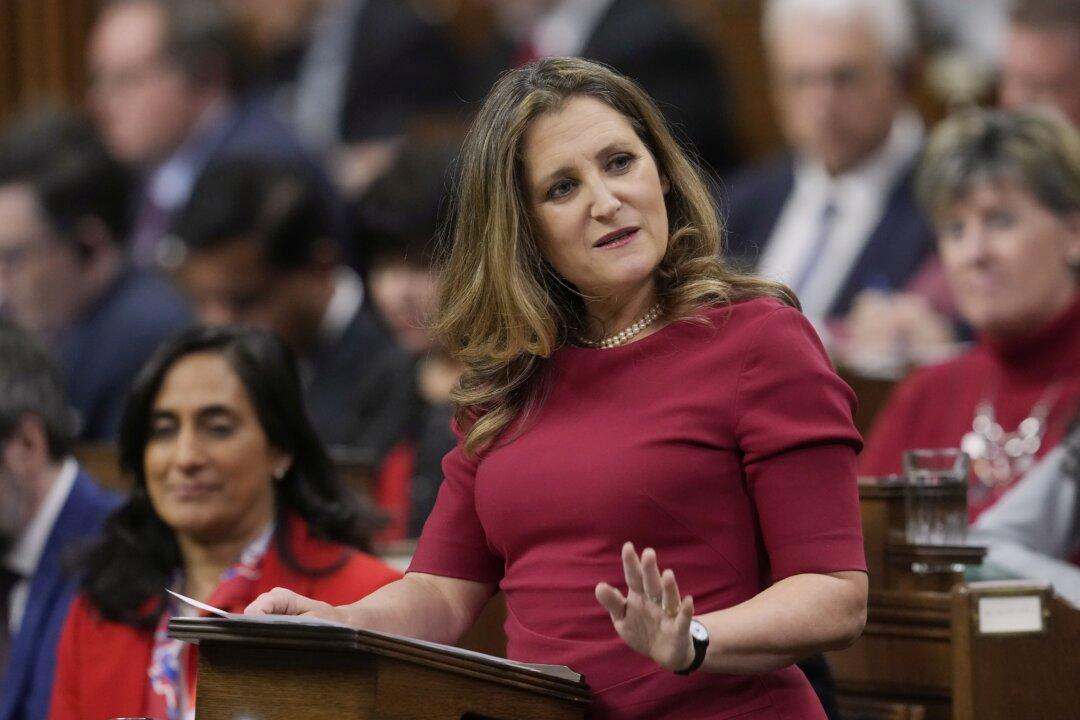While Ottawa aims to attract foreign capital and Finance Minister Chrystia Freeland recently touted this year’s foreign direct investment (FDI) performance in Canada, issues still exist as productivity has nosedived and the business and regulatory environment has for some time been blamed for not being conducive for investment.
“Because of our economic plan, Canada is now a global investment destination of choice,” Ms. Freeland told the House of Commons on Nov. 21 when she unveiled the government’s fall economic statement.





